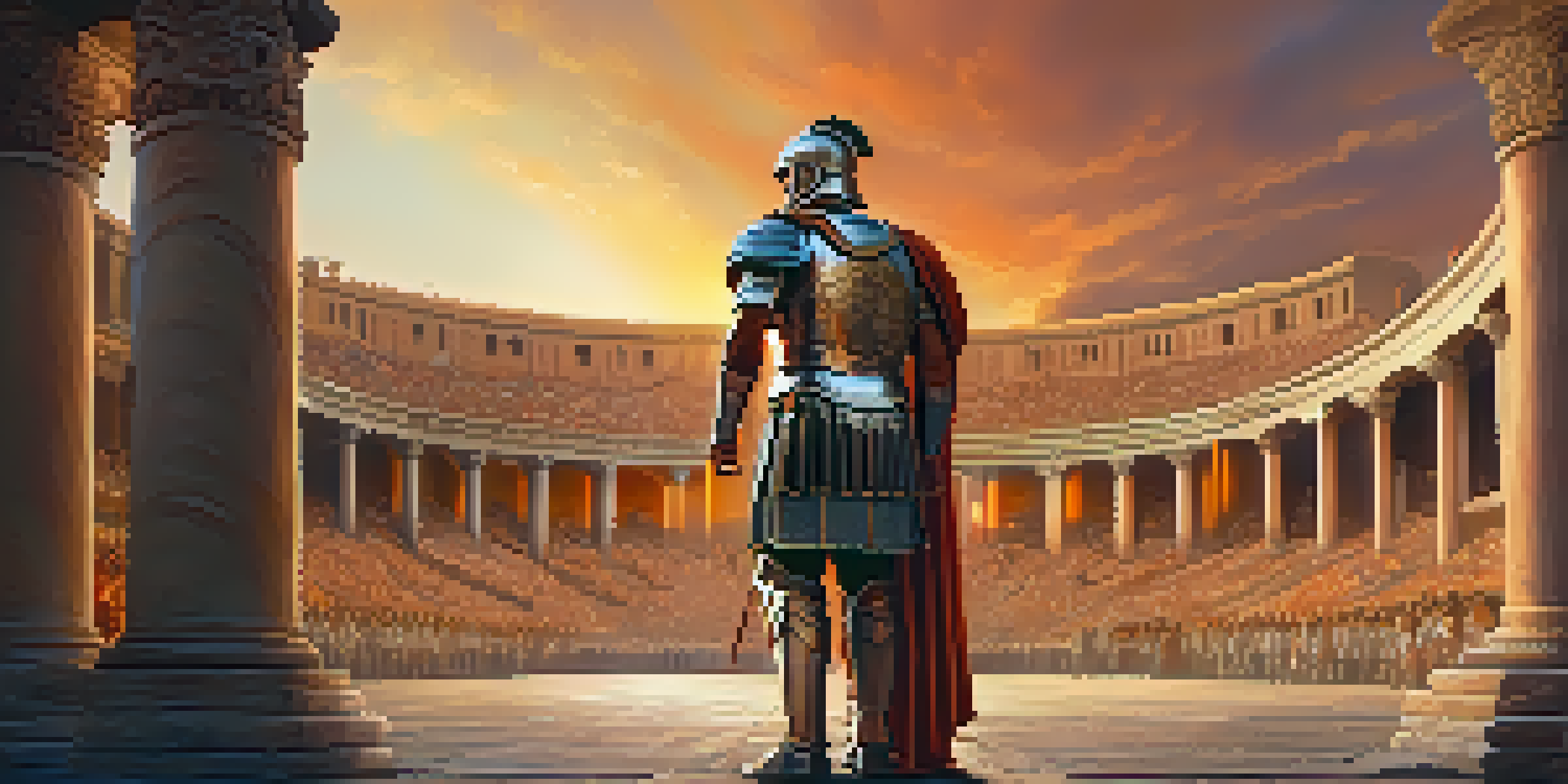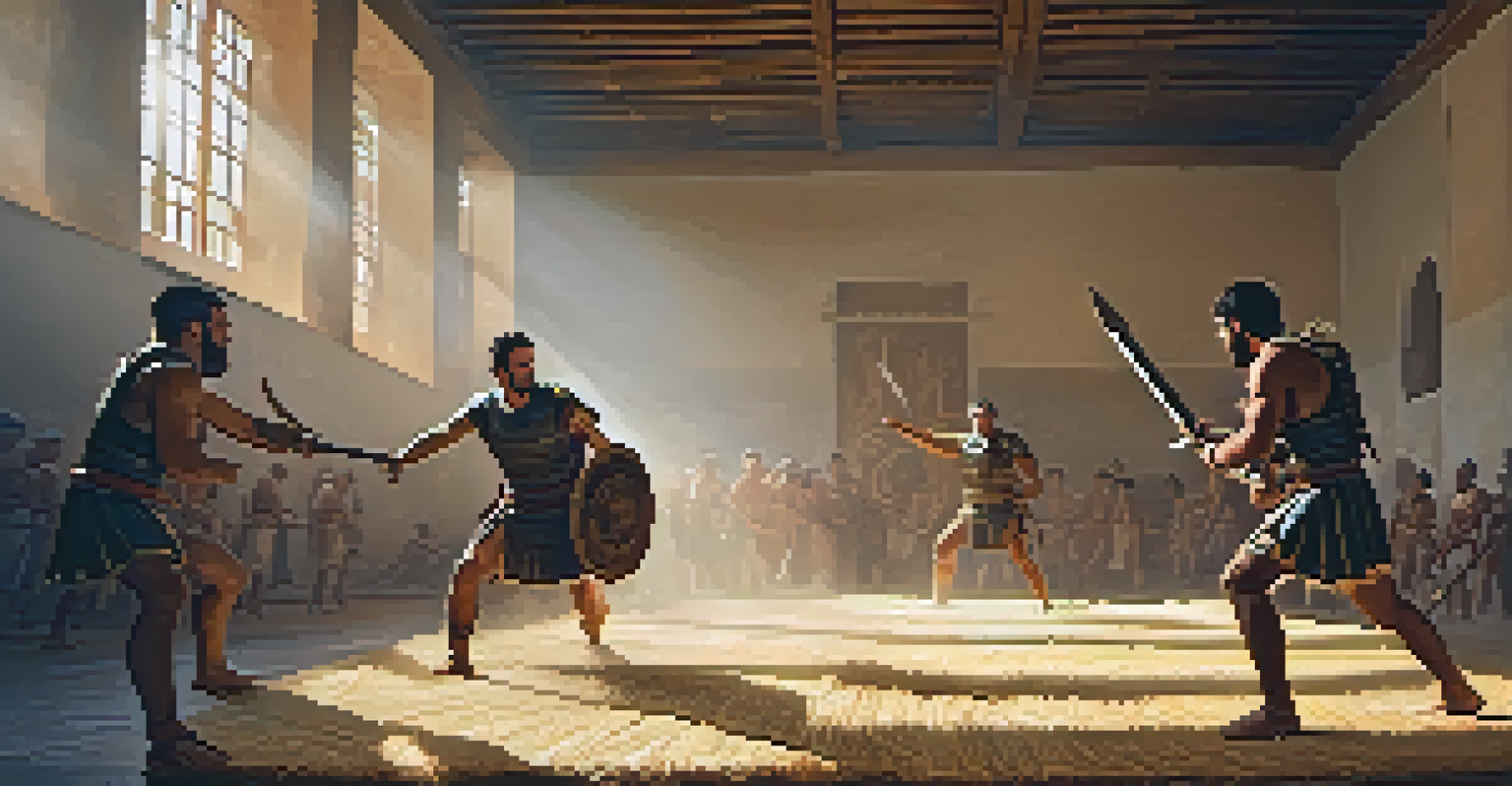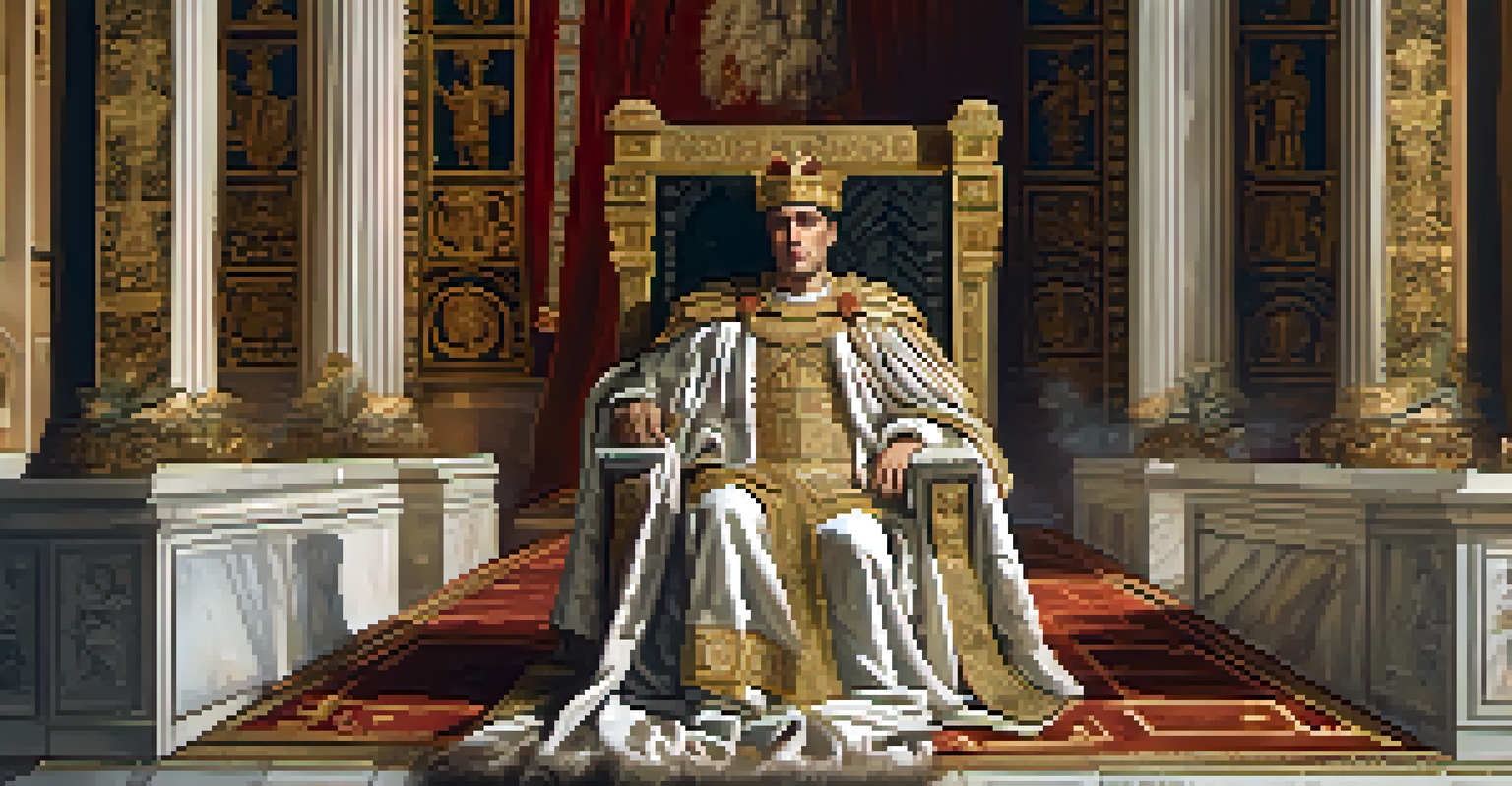The Truth Behind 'Gladiator': Rome's History in Film

The Historical Context of 'Gladiator'
Set in the early second century, 'Gladiator' immerses viewers in a Rome filled with political intrigue and power struggles. The film captures the essence of the Roman Empire at its peak, showcasing the complexities of its society. While it dramatizes events for cinematic effect, it does provide a glimpse into how emperors wielded power.
The gladiatorial games were a way to distract the masses from the political issues at hand, reinforcing the old adage that bread and circuses keep the populace content.
The story revolves around Maximus, a general turned gladiator, reflecting the harsh realities faced by many during this period. Gladiatorial games were not just entertainment; they were a tool for emperors to control and distract the populace. This historical backdrop sets the stage for understanding the film's themes of betrayal and revenge.
However, while 'Gladiator' incorporates real historical figures, such as Emperor Marcus Aurelius, it takes creative liberties with their stories. This blending of fact and fiction invites viewers to question what they know about Rome's past.
Real Gladiators: More Than Just Fighters
In 'Gladiator', the portrayal of gladiators as fierce warriors is captivating, but it's essential to remember that they were also complex individuals. Many gladiators were slaves or prisoners of war, forced into brutal combat for survival. Some, however, were volunteers seeking fame and fortune, illustrating the diverse motivations behind becoming a gladiator.

These fighters trained rigorously, honing their skills in specialized schools called 'ludi'. The life of a gladiator was not merely about fighting; it involved discipline, physical fitness, and strategy. This dedication is reflected in the film's intense training sequences, highlighting their commitment.
Gladiators: More Than Just Fighters
Gladiators were often slaves or volunteers, highlighting their complex motivations and the harsh realities of their lives.
While the film does glamorize the life of gladiators, it also shows the harsh realities they faced, including the constant threat of death. This duality helps to humanize these figures, reminding audiences that behind the armor were real people with hopes and dreams.
The Role of Emperors in Gladiatorial Games
Emperors played a crucial role in organizing gladiatorial games, using them as a means to gain favor with the public. In 'Gladiator', the character of Commodus, portrayed as a power-hungry ruler, embodies this reality. He uses the games to showcase his strength and divert attention from his political failures.
Power tends to corrupt, and absolute power corrupts absolutely.
Historical records reveal that emperors often participated in games, either as spectators or even as combatants, further blurring the lines between politics and entertainment. This aspect of Rome's culture is depicted in the film, emphasizing the spectacle that surrounded these events.
Commodus' portrayal as a villain, while exaggerated, highlights the dangers of absolute power. It serves as a reminder that the emperors’ love for the games often came at the expense of morality and justice.
The Impact of Gladiatorial Games on Society
Gladiatorial games were more than just entertainment; they were a reflection of Roman societal values. The events served to reinforce social hierarchies and distract the masses from political issues. 'Gladiator' cleverly weaves this theme into its narrative, showcasing how the games captivated the population.
The film illustrates the dual nature of these events, where they could evoke both admiration and horror. This complexity is crucial to understanding the societal implications of the games, which were deeply embedded in Rome's cultural fabric.
Emperors Used Games for Power
Emperors organized gladiatorial games to gain public favor, blending entertainment with political strategy.
Ultimately, the games were a manifestation of power, control, and spectacle, echoing the struggles and triumphs of the Roman people. This interplay between society and entertainment is a central theme in the film, inviting viewers to reflect on the role of spectacle in their own lives.
Cultural Depictions of Rome in Film
'Gladiator' is not the only film to depict Rome, but it stands out for its dramatic storytelling and rich visuals. Other films, like 'Spartacus' and 'Ben-Hur', also explore themes of freedom and rebellion but often focus on different aspects of Roman life. This variety allows audiences to engage with Rome's history from multiple angles.
Cinematic portrayals of Rome often highlight its grandeur and brutality, emphasizing the extremes of its society. 'Gladiator' effectively captures this duality, showcasing both the opulence of the empire and the harsh realities faced by those at the bottom.
These films play a significant role in shaping modern perceptions of ancient Rome, blending fact with fiction. While they entertain, they also spark interest in the historical events and figures that inspired these narratives.
The Legacy of 'Gladiator' in Modern Cinema
'Gladiator' has left an indelible mark on modern cinema, influencing how historical dramas are crafted. Its success revived interest in epic storytelling, leading to a resurgence of films set in ancient times. The film's blend of action, drama, and historical context set a new standard for the genre.
The movie's impact can be seen in subsequent films that attempt to balance historical accuracy with engaging narratives. This trend encourages filmmakers to delve deeper into historical research while still captivating audiences with compelling stories.
Lessons on Power and Justice
'Gladiator' explores the timeless struggle against tyranny, emphasizing the consequences of unchecked power and the pursuit of justice.
Furthermore, 'Gladiator' has sparked discussions about the representation of history in film, prompting viewers to critically analyze what they see on screen. This legacy continues to shape how we engage with historical narratives in popular culture.
Lessons from 'Gladiator' About Power and Justice
'Gladiator' is more than just an action-packed film; it offers profound insights into power dynamics and the quest for justice. Maximus' journey reflects the struggle against tyranny, resonating with audiences on multiple levels. His character embodies the timeless battle between good and evil, making the film relatable even today.
The film challenges viewers to consider the consequences of power and the importance of moral integrity. Commodus’ ruthless ambition acts as a cautionary tale about the dangers of unchecked authority, reminding us of the responsibilities that come with power.

Ultimately, 'Gladiator' serves as a powerful reminder that the fight for justice is a universal theme, transcending time and culture. This enduring message ensures the film's relevance, encouraging audiences to reflect on their own values and beliefs.